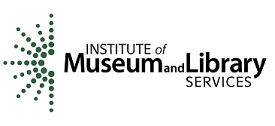Discover Community Needs and Interests
 If active learning seeks to involve community members to co-create and collaborate around the learning that is most driven by their interests, then it is essential to get a fresh view of what those interests and needs are. Shift the whole conversation from what can the library do for them to what can you do with them. It is the initial stage of the design thinking process, gaining empathy with the people you’re designing for. Learn how to get beyond the traditional survey to start meaningful conversations and foster collaborative relationships.
If active learning seeks to involve community members to co-create and collaborate around the learning that is most driven by their interests, then it is essential to get a fresh view of what those interests and needs are. Shift the whole conversation from what can the library do for them to what can you do with them. It is the initial stage of the design thinking process, gaining empathy with the people you’re designing for. Learn how to get beyond the traditional survey to start meaningful conversations and foster collaborative relationships.
Getting to the Heart of the Community Through Discovery (1-hour webinar)
This one-hour WebJunction webinar explores tools and strategies that start meaningful conversations and foster collaborative engagement with your community on everything from strategic and space planning to programming.
Placemaking in Libraries - Mary Lou Carolan (25:05 minute video)
With an emphasis on the principle of “lighter, quicker, cheaper,” small library director Mary Lou Carolan brings ideas for placemaking to life.
Know Your Audiences Worksheet (pdf)
Community discovery means thinking inclusively of everyone in your community: those who already use the library, those who don’t, and any groups that you are particularly interested in connecting with. Use this worksheet to recognize all current or potential groups in your community and to think about how you will connect with new audiences.
Building Community Connections Guide (pdf)
This guide frames community discovery through an equity lens and will help you fulfill your intention to connect with new audiences in your community.
Community Data Resources (pdf)
What data is available to inform your knowledge of the community? Locate and harvest available data from this list of common sources of demographic information.
Basket of Discovery Tools (pdf)
For years, libraries have relied mainly on surveys to collect information about their community’s interests and needs. But tuning into the community as the expert requires new and fresh approaches. There is a wide selection of tools that support open-ended inquiries, elicit out-of-the-box feedback, and foster genuine listening.
Quick Wins Through Community Discovery
Among the ideas you gather from community discovery, there may be some "quick wins"—things the community desires that you could implement right away without much time and money.
Community Discovery in Action (9:25 minute video)
James Kennedy Public Library (IA) participated in the first round of the Small Libraries Create Smart Spaces project. YA Services Manager Paul Zurawski describes the many ways that they elicited community input and collaboration.
Photo: Beardsley (CT) Public Library attends the annual town Pet Parade to ask the public to “Think a think” about what they want to learn; used with permission
The Smart Libraries Create Smart Spaces project was made possible by support from OCLC and a National Leadership Grant (project number LG-80-16-0039-16) from the Institute of Museum and Library Services. The Association for Rural and Small Libraries was implementation partner for the project.


Toolkit for Creating Smart Spaces
WebJunction offers a toolkit to help you re-envision your library’s place as a center of community learning. Explore more of the Toolkit for Creating Smart Spaces.
